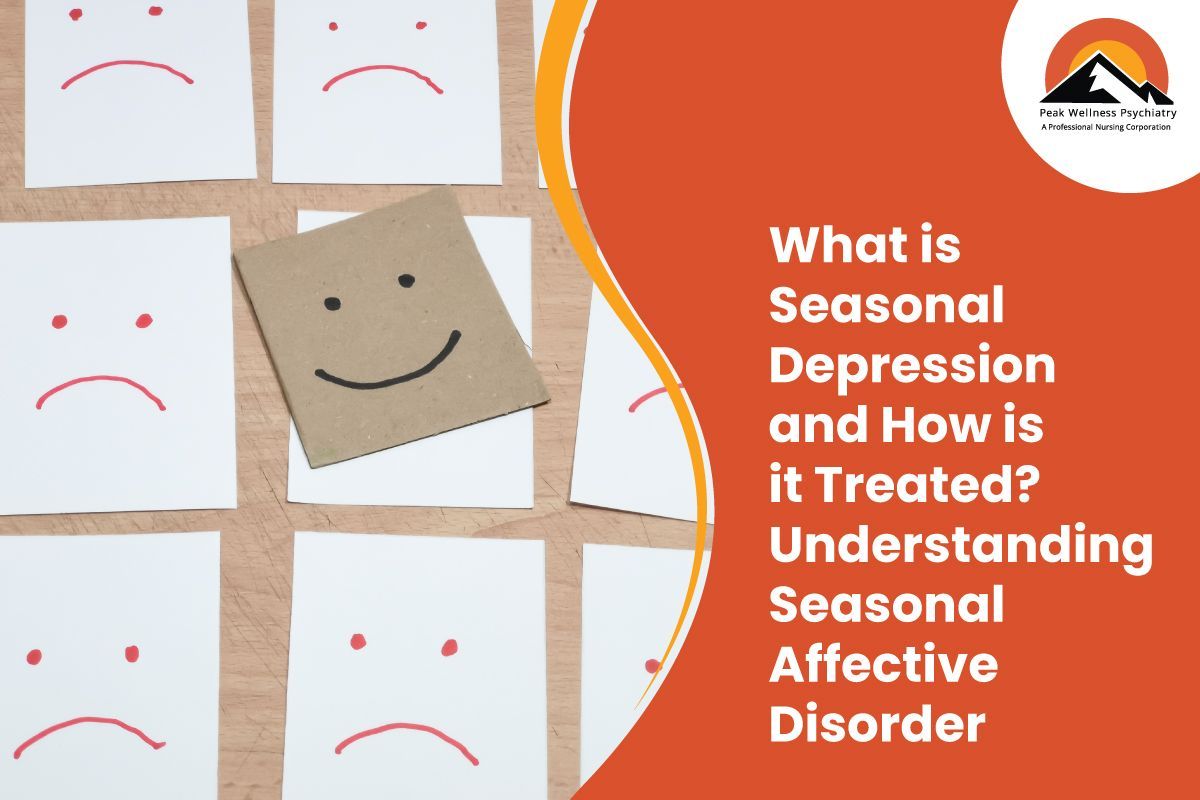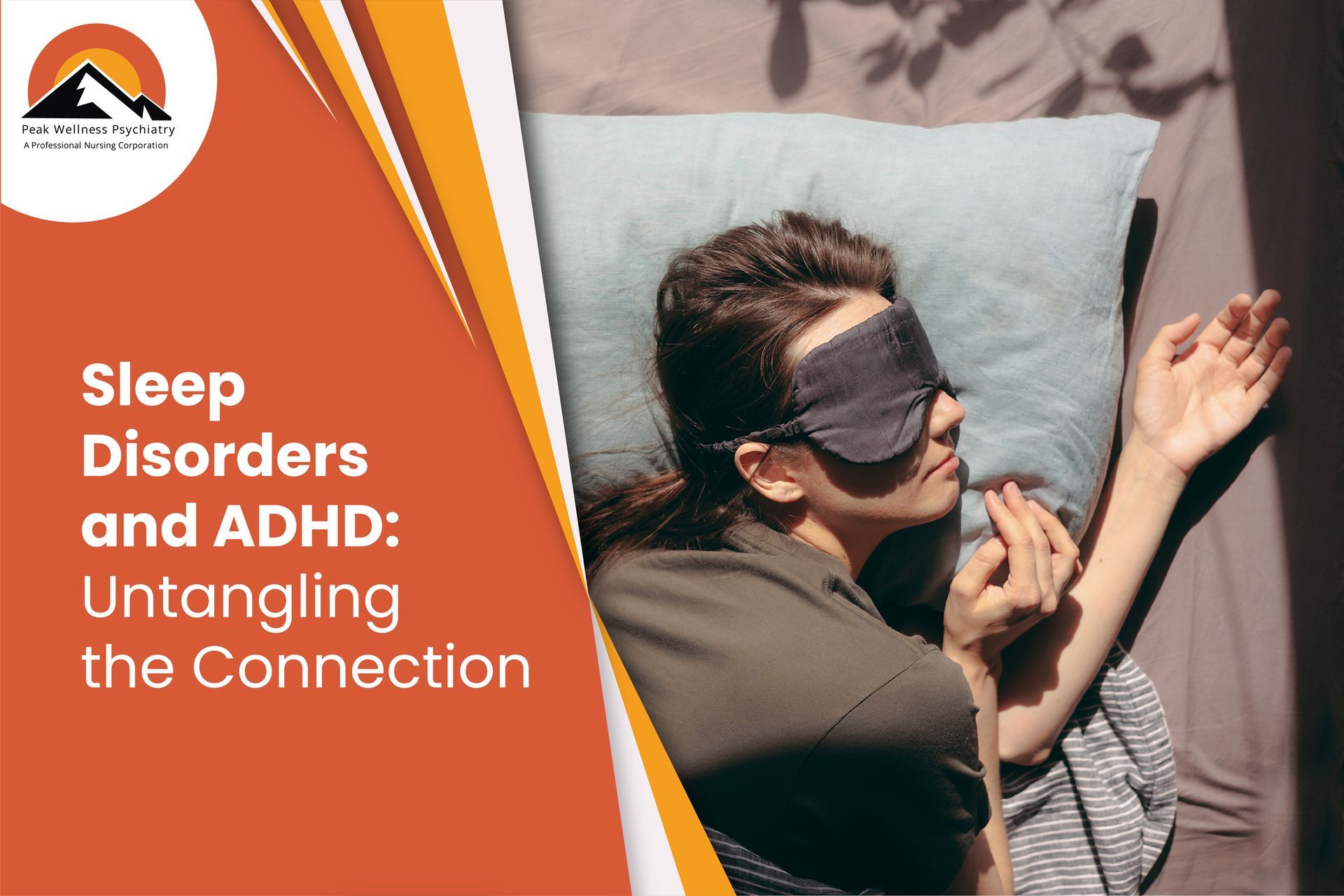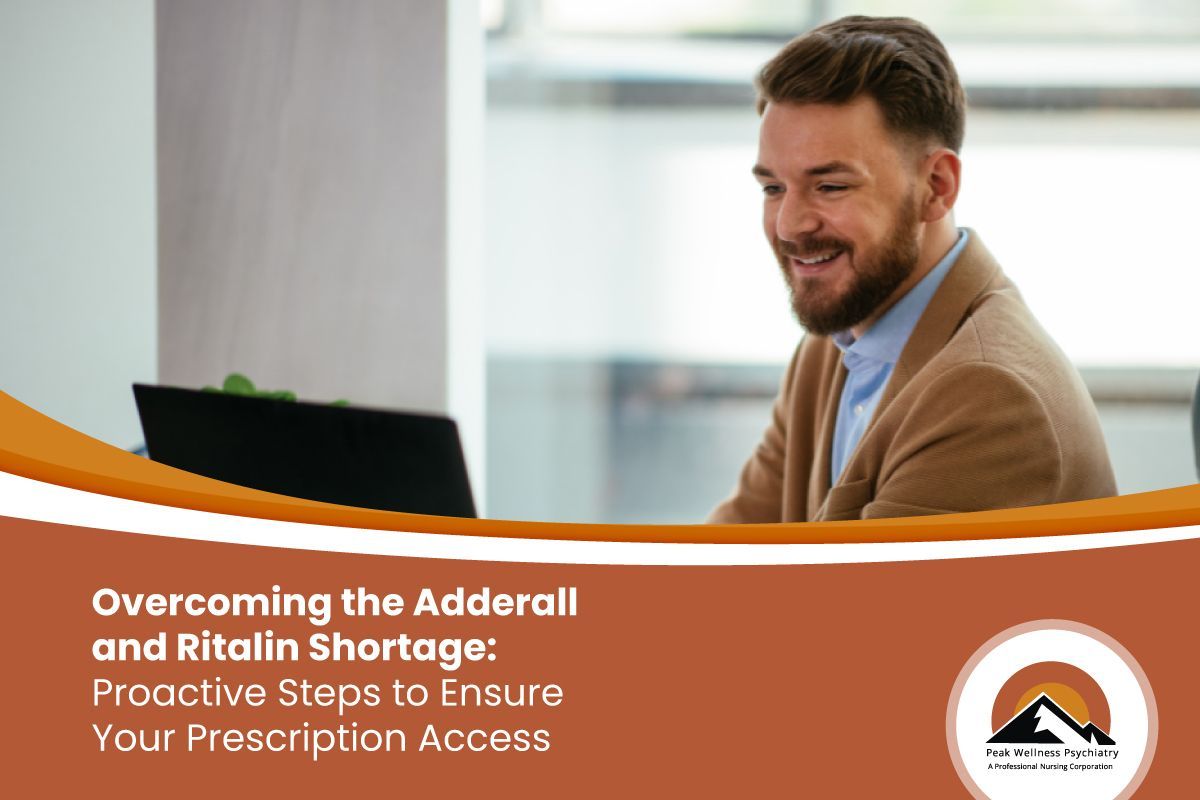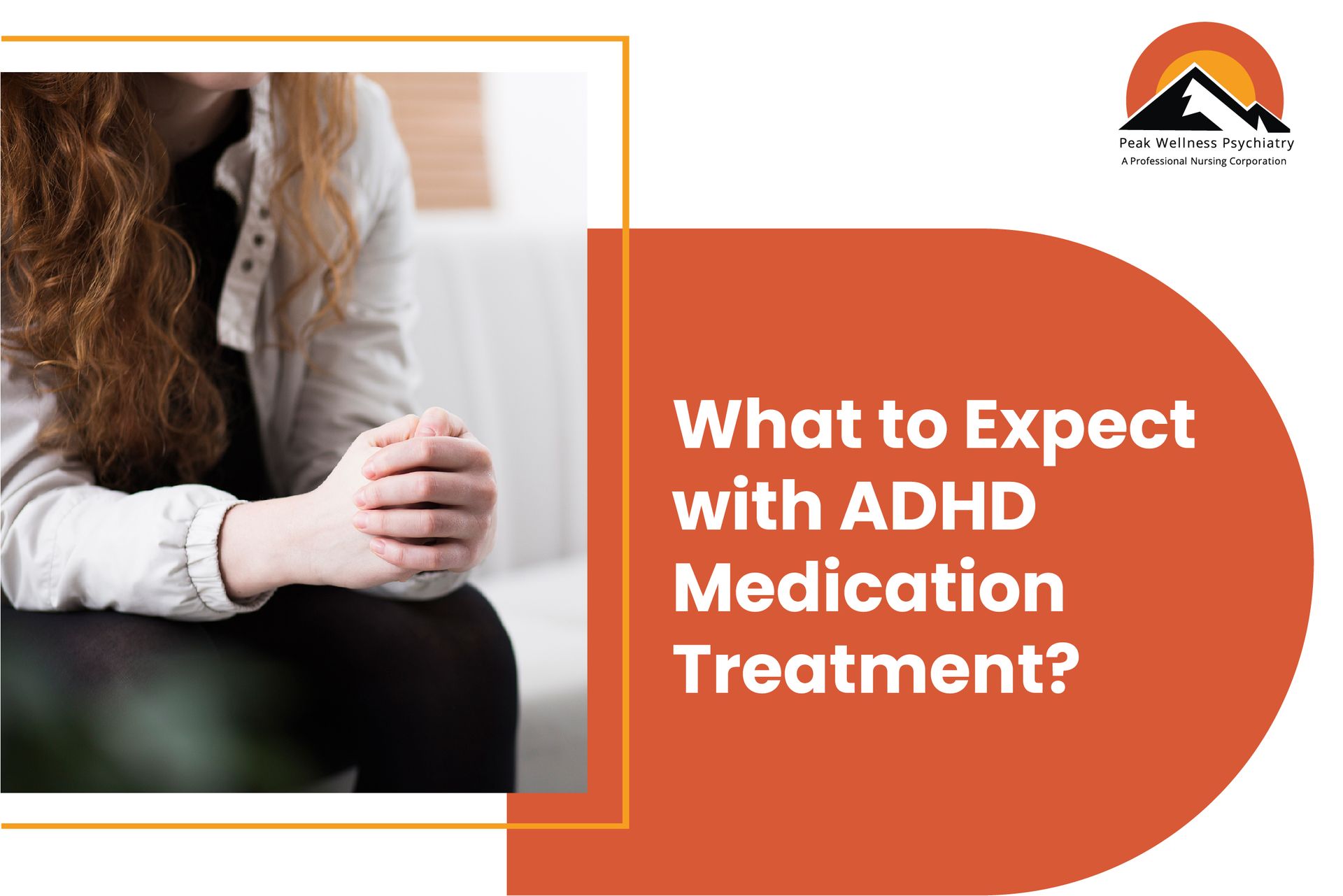Signs You Have High-Functioning Depression

Have you ever felt like you're constantly wearing a mask? On the outside, everything seems fine – you go to work, socialize, and carry on with your daily life, yet there's an underlying current of sadness or emptiness that you can't quite shake off.
This is the reality for many who live with high-functioning depression. It's a silent struggle, often unnoticed by others and sometimes even by those who have it. But just because you're functioning doesn't mean you're not suffering. This blog is for those who are fighting this hidden battle. Read on to learn more about high-functioning depression symptoms and the ways to overcome them.
What is High-Functioning Depression?
High-functioning depression, clinically known as dysthymia or persistent depressive disorder, is a chronic form of depression that is often less severe but more enduring than a major depressive disorder. Unlike the typical portrayal of depression, where individuals might struggle to get out of bed or complete basic tasks, those with high-functioning depression maintain their daily responsibilities and outwardly appear to be managing well.
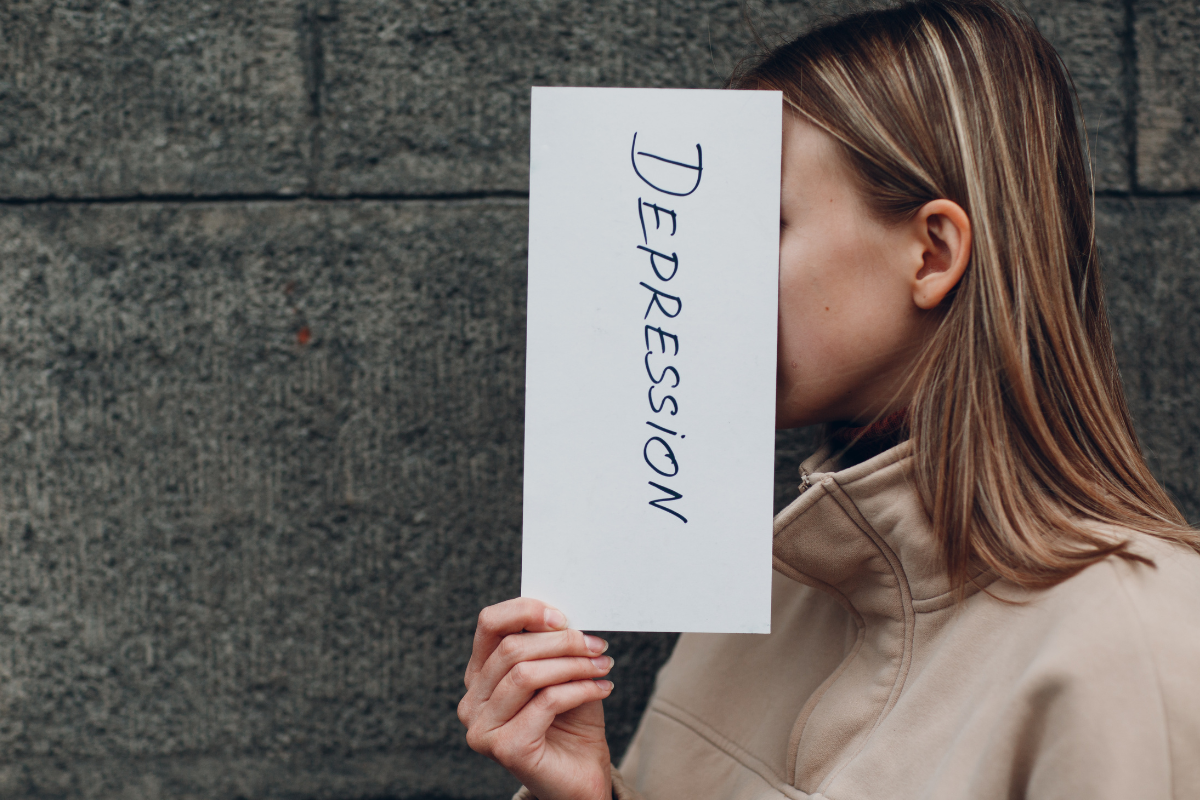
What Does High-Functioning Depression Look Like?
Individuals with functional depression actively maintain a facade of normalcy, often excelling in work, school, and social interactions. Despite their outward success, they grapple with significant internal struggles. These individuals attribute their subtle symptoms to stress or a busy lifestyle, which makes diagnosis harder. Therefore, this condition remains frequently misunderstood, masking the actual extent of their emotional and mental hardships.
Here are some critical signs of high-functioning depression:
- Persistent sadness or low mood
- Constant tiredness or having low energy
- Irritability or having a shorter temper than usual
- Decrease in appetite and weight loss or increased cravings and weight gain
- Persistent feelings of pessimism, hopelessness, or low self-esteem
- Sleeping too much (hypersomnia) or having trouble sleeping (insomnia)
- Problems with focus, decision-making, or remembering things
- Diminished interest or pleasure in activities that were once enjoyed, including socializing
- Persistent aches, pains, or digestive issues that lack a clear physical cause and do not improve with treatment
It's essential to recognize that symptoms vary from person to person and that having a few of these signs doesn't necessarily mean someone has functional depression. A mental health professional can give a proper diagnosis and recommend appropriate treatment.
What Is the Risk of Not Treating High-Functioning Depression?
High-functioning depression is particularly insidious because it can go unrecognized and untreated for a long time. The ability to function effectively leads you to believe that you do not need help or that these enduring negative feelings are just a normal part of life. However, if you don't get treatment, it will result in a higher risk of developing major depression, anxiety, substance abuse, or severe health problems due to prolonged stress and mental strain.

Coping Strategies for High-Functional Depression
Dealing with high-functioning depression requires a holistic approach that often involves self-care strategies, lifestyle changes, and professional support. Here are some effective coping strategies:
1. Get Professional Support
The most important step is to seek help from a mental health professional. Therapists, counselors, psychiatrists, or psychiatrist nurse providers offer personalized strategies and treatment plans, including therapy sessions and, if necessary, medication.
Keep a Journal
It can be therapeutic to write down your thoughts and feelings. It helps in organizing your thoughts and provides insights into your emotional state. One study showed that a therapeutic technique called Positive Affect Journaling (PAJ) significantly improves emotional well-being. It's a self-reflective practice focusing on writing about positive moments and emotions.
2. Build a Support System
Surround yourself with supportive family and friends. Sharing your feelings with trusted individuals alleviates the sense of isolation that accompanies depression.
3. Practice Mindfulness and Meditation
Practices like mindfulness and meditation help manage stress and improve your mental well-being. Regular practice provides a sense of calm and enables you to stay grounded.
4. Exercise Regularly
Physical activity is good not just for your body but also for your mind. Even a daily walk makes a significant difference. It is scientifically proven that regular exercise increases endorphin production. Endorphins are brain chemicals that naturally uplift our mood.
5. Eat a Balanced Diet
The food you eat affects your mood and energy levels. The best diet for mental health is a healthy diet rich in whole grains, vegetables, fruits, and lean proteins.
6. Get Plenty of Sleep
Establish a regular sleep schedule. Good sleep is crucial for mental health. Avoid screens before bedtime, reduce caffeine intake, and create a relaxing bedtime routine.
7. Set Realistic Goals
Make large tasks manageable by breaking them into smaller steps. Celebrate small victories, and don't be too hard on yourself.
8. Engage in Hobbies
Reconnect with activities that bring you joy. Whether it’s reading, painting, gardening, or playing music, hobbies are a great source of comfort and relaxation.
9. Limit Stress
Identify stressors in your life and find ways to reduce or eliminate them. This might mean setting boundaries in personal and professional relationships or managing your workload more effectively.
10. Stay Informed
Educate yourself about depression and mental health. Understanding your condition enables you to make better health choices.
11. Do Regular Check-ins
Have regular check-ins with yourself. Acknowledge your feelings, understand what triggers your low moods, and take proactive steps to manage them.
12. Consider Support Groups
Sometimes, talking to others experiencing similar challenges can be incredibly validating and supportive. Look for local or online support groups where you can share experiences and gain insights. If you find it intimidating to speak up, start by observing or listening in. Remember, everyone in the group is there to offer support and understanding, creating a safe space for you to gradually open up and share your own journey.
You Don't Have to Suffer in Silence!
Depression isn't always visible. Recognizing the signs of "smiling depression" is the first step toward a more fulfilling life, a future where this mental health condition does not overshadow your potential. This is entirely possible with the proper support and treatment.
Peak Wellness Psychiatry provides a compassionate and convenient way to receive the help you need. We understand the unique challenges of high-functioning depression, and we offer personalized care that fits into your life. With just a few clicks away, you can gain access to compassionate and skilled psychiatric nurse practitioners dedicated to your well-being.
Reach out today and take the first step towards a life filled with more joy, fulfillment, and peace. Fill out our online form or call us at 888-909-8676 to schedule a consultation.



